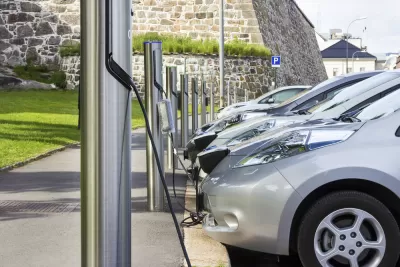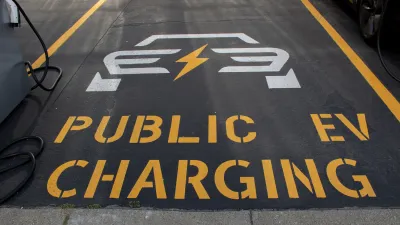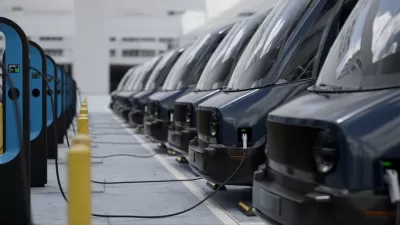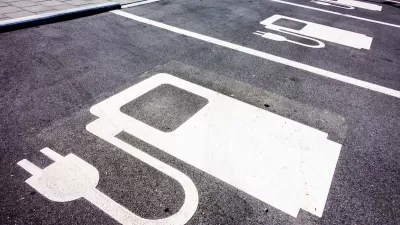Over a decade ago, automakers predicted that every new car would be a hybrid by 2020. Why were they so off the mark?

In 2008, an IBM report "asked 125 auto industry executives about their predictions for what cars would be like in 2020. The resulting report predicted every car by 2020 would be a hybrid," writes Aaron Gordon. Yet the actual numbers are nowhere close: only about three percent of new cars sold in 2020 were hybrids, an extremely modest increase from 2.4 percent at the time of the report. Automakers also wrongly predicted a trend toward smaller, more efficient vehicles. In fact, "as quickly as the economy recovered and gas prices fell, consumers returned to buying the biggest trucks and SUVs they could find." Meanwhile, hybrids became associated with Hollywood elites, decreasing their appeal for many ordinary Americans.
Dan Sperling, professor at University of California, Davis and founding director of the Institute for Transportation Studies, more accurately predicted the pace of hybrid and EV adoption. But Sperling thinks the current situation is different. According to Sperling, "the combination of reduced battery costs and future regulations both in the U.S. and abroad will ensure auto companies follow through" on new plans to boost EV production and sales. "Even if the federal government doesn't enact EV mandates, California will, Sperling said, and many states will likely follow. He predicted the needle won't move much before 2026, but after that, expect the market to take off."
FULL STORY: Experts Predicted All Cars Would Be Hybrid by 2020. Why Were They Wrong?

Maui's Vacation Rental Debate Turns Ugly
Verbal attacks, misinformation campaigns and fistfights plague a high-stakes debate to convert thousands of vacation rentals into long-term housing.

Planetizen Federal Action Tracker
A weekly monitor of how Trump’s orders and actions are impacting planners and planning in America.

Chicago’s Ghost Rails
Just beneath the surface of the modern city lie the remnants of its expansive early 20th-century streetcar system.

Bend, Oregon Zoning Reforms Prioritize Small-Scale Housing
The city altered its zoning code to allow multi-family housing and eliminated parking mandates citywide.

Amtrak Cutting Jobs, Funding to High-Speed Rail
The agency plans to cut 10 percent of its workforce and has confirmed it will not fund new high-speed rail projects.

LA Denies Basic Services to Unhoused Residents
The city has repeatedly failed to respond to requests for trash pickup at encampment sites, and eliminated a program that provided mobile showers and toilets.
Urban Design for Planners 1: Software Tools
This six-course series explores essential urban design concepts using open source software and equips planners with the tools they need to participate fully in the urban design process.
Planning for Universal Design
Learn the tools for implementing Universal Design in planning regulations.
planning NEXT
Appalachian Highlands Housing Partners
Mpact (founded as Rail~Volution)
City of Camden Redevelopment Agency
City of Astoria
City of Portland
City of Laramie





























